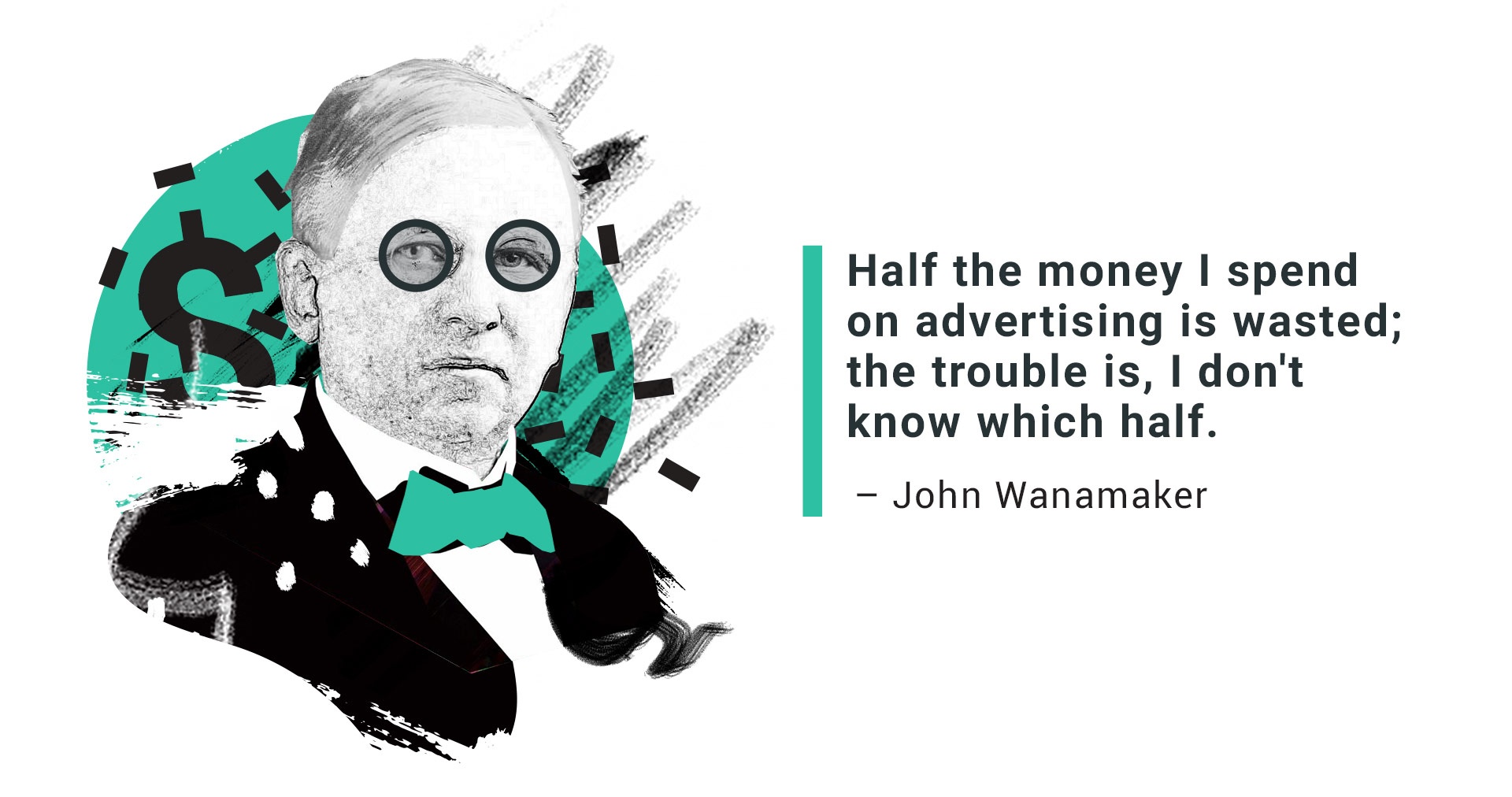
Exploring Attention’s Renaissance

Keith O'Brien
Albert Thompson, Walton Issacson MD, digital innovation, discussed why attention is the only thing that matters, why the truth about attention will set CMOs free, and how full-service agencies have an upper hand on looking at attention holistically.
Why is attention important?
I think attention has always been the only real estate that matters. The world is always at odds about who is going to have the most influence.
And to have influence, you have to have attention. And I think when you start to look at even the paradigm shift from going from powerful countries to powerful companies to powerful people. The underlying thread that's always being sought after is this notion of attention.
|
I think attention has always been the only real estate that matters. |
So when we get into the brass tacks of why attention matters, it is for which we can wield our way, as it relates to influence or power or control. It's very much everything.
It is why the social media ecosystem garners so much currency. We've always been in an Attention War society. And that's basically what media is very much based on. That is the byproduct of what everyone is seeking.
I think it's just humorous that however many years later the term’s been around – 50 or 60 years later -- that we're now trying to work backward to see, okay, did they really pay attention to all this money we spent, while the money is exiting, and in transit moving into CTV and other respective channels?
The world, and in particular the US, really runs on a real estate philosophy. It's always about the land, even in a metaphorical sense. You start to understand that attention is the land and it is the thing that garners more power over anything else.
It's the currency that will probably matter more than anything else.
Is there a sense that some of this is about the technology catching up and the techniques are now easier and more effective to gauge attention when people are looking at content or ads?
Right now, attention is going through a real renaissance, as you said, because of technological advancement. The danger for people who've been wrestling with an old model is that the truth is going to come out around attention because the advancements in artificial intelligence can create clear signals of intent.
| ...the truth is going to come out around attention because the advancements in artificial intelligence can create clear signals of intent. |
People say, ‘Oh, of course, people watch. It's the highest-rated show.’ The problem is that the average person, when commercials come on, does what? Holds up their phone. And if they're not holding up their phone or going to the bathroom, some are multitasking.
We all have the same amount of time. Time is like the ultimate asset that we are constantly trading up and trading down or exchanging for, so a lot of it is lost in the commercial break spot just because that is a valuable time to work in some other part of our life stream that we're still trying to support or cultivate during that time.
When you look at technology, it’s creating the ability to sit there and find out. Okay, let's get to the truth. The truth is not necessarily what we project. People project the best intent. We've learned that and they do that even in interviews and surveys. What do you think about this? People always want to project the right answer. Societal norms force us to manage our responses to what is most acceptable and to not be some maverick in the room.
But the reality is our bodies are always signaling. They're always telling a story, and they're usually telling the truth because as they say they say, the eyes don't lie. Well, I think all the biometrics don't lie, because this is the stuff that government agencies like the FBI and NSA use to understand threat level assessment. So brands are going to figure out who inherently has been lying all this time or misleading them.
It’s a question that is going to scare some people. But it’s better to know the truth. And that's the liberating factor. All that's going to come to roost, and it will be very interesting as we move into 2024.
How do you look at creative and media attention? Should they be viewed together or are they separate things that need to be looked at separately?
They're absolutely tethered together. When you think about creative attention and media attention, I mean, the thing is, if you look at human nature, and how people behave and those who garner our attention. They do it through a series of factors that drive this idea of the laws of attraction, right? And it's somewhat the canvas they represent; like, this is a very interesting person. They've got great style and great banter - a great narrative that holds you and grabs you and pulls you in. Creative and media work the same way, with media being the canvas and creativity being the narrative.
If you ever watch late-night TV show hosts, you’ll notice the way they can draw in the crowd and create this energy. You'll find, a lot of time, the creative doesn't do the same. Obviously, the show format, e.g., late night, is the canvas.
Sure, there are a lot of people who are insomniacs, so they need something to give them a mindless escape. But with a good host that is very interesting, that draws you in. The idea is that the canvas and the narrative go together the same way, creative and media go together. I think the problem is you have these silos between a creative agency and then a media buying agency both of which have different lanes of investment that they manage, which is total horse crap.
|
The idea is that the canvas and the narrative go together the same way, creative and media go together. |
When we start to look at the beauty of agencies, like ours, which are full-service shops, those things can be threaded together. But you have to develop a narrative very specific to the rules of engagement of the channels it shows up in. And I think if attention was the North Star, the same way laws of attraction are, you would have all the people who are part of the spectrum of making it happen, sitting in a room and saying, ‘How do we get best here from there?’
Because I used to tell creative people, it's a different creative that converts and sells versus creative that maybe enlightens and inspires. And that's sometimes a totally different pitch or you have to be so good to thread both. And there are those companies that set the frame very well: your Louis Vuitton's, Gucci's, Apple’s, Tesla’s, and I've seen the likes of Lexus do it where they set the frame so well. You just buy into the story and it takes a hold of you and you where you start to build your brand affinity.
And what you find out is, there are a lot of brands that do a poor job of the frame. They focus on what the picture is, and the picture could just be a TV spot in the wrong context, or it could be an effective use of media with the wrong creative narrative that's sitting in between it.
So you've been working in the world of attention for a long time. What's your advice for those who are just getting started or feel like they're too far behind?
If no one is dialing into the messaging, you're just wasting creative money and media money. When people say that in marketing 50% of my budget is wasted, I just don't know which part. This is why attention conversations are so important because people are tired of wasting money.
There's too much technology, too much data, too much line of sight, too much advancement to not know. There are no more excuses; you can't hide.
As a starting point, you must understand how consumers make decisions about your brand. You really have to break down that whole consumer psychology between the person's decision-making model and the consumer journey.
How is attention driven? Is it pieced together, channel by channel in a journey so a little bit of here, a little bit here that creates an entire storyline? Then you have to start to piece together that if attention is what we need to have influence and to be considered again, laws of attraction are all about being considered. Then you have to figure out which mechanisms you can pull.
And I think part of the challenge with this is that people are scared to find out what they were doing wasn't garnering attention, but the CMO liked it, so it got signed off, and the creatives loved it.
|
...people are scared to find out what they were doing wasn't garnering attention, but the CMO liked it, so it got signed off. |
When you know your budget holder will approve creative that the consumer is going to use it as an empowerment mechanism to buy your product, there are brands that better thread that than others. The solution is always starting with better decisioning. I'm always amazed that a lot of decisioning is just very weak.
And that has everything to do with why brands can't land attention. Conversation on frame and people are worried about what they have stated. That was out of pocket, as they say, the last half decade or decade. And what that's going to mean. I think people just couldn't wait for the truth to show up and say, well, at least now we know because they're tools that tell us what we didn't know before.
